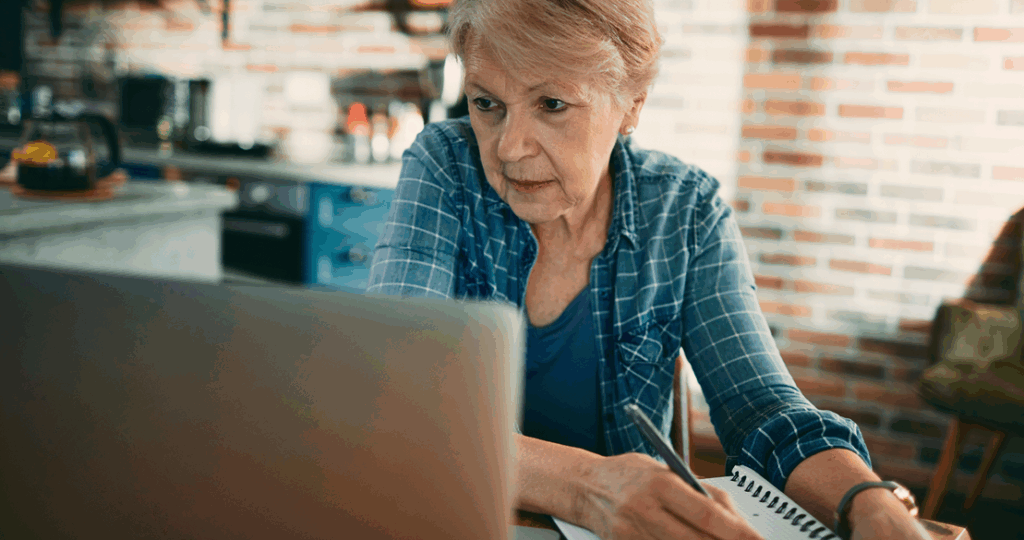
Parkinson’s disease support tips: Collecting and sharing information
Going on vacation, a day trip with the family, tidying up the garden, walking the dog, picking up the grandchildren from school, or doing some exercise – activities that once seemed easy to do without thinking now require careful consideration with a Parkinson’s diagnosis. Suddenly, the body no longer functions as it should. A Parkinson’s diagnosis presents significant challenges not only for those affected but also for their families. A good overview of the disease helps people cope better with the situation and provide the best possible support to those affected. Here are some important Parkinson’s disease support tips for families, friends and caregiver on collecting and sharing information about Parkinson’s.
Inform and understand
One of the most important tasks for family members and friends is to educate themselves about Parkinson’s. A detailed understanding of the symptoms, progression, and effects of the disease makes it possible to better recognize the needs and challenges of the affected person and respond appropriately.
Regarding the symptoms, most people associate Parkinson’s with tremors. The term “trembling disease” is often used. This refers to an involuntary trembling, usually at rest, particularly in the hands or fingers. But bradykinesia is also a typical motor symptom of the disease. This refers to slower movements and difficulty initiating movements. And rigidity refers to increased muscle tension, which leads to stiffness and restricted movement. The last typical motor-symptom of Parkinson’s is called postural instability, which is characterized by balance problems and often leads to an increased risk of falls.
So, Parkinson’s is certainly accompanied by motor symptoms. But few people know that non-motor symptoms are also typical of Parkinson’s. They affect other body systems and can often occur before the motor symptoms:
Autonomic symptoms, such as low blood pressure, digestive disorders, and increased sweating, or cognitive impairments such as difficulty concentrating, memory problems, and late-stage dementia are typical. Also, psychological symptoms such as depression, anxiety disorders and sleep problems, or sensory disturbances such as pain and olfactory disorders may occur.
Non-motor symptoms are often underestimated but can severely impair quality of life. Due to the diversity of the disease, it is important for relatives to deal with all individual symptoms.
The course of Parkinson’s disease is chronically progressive. Gradually, mobility and other bodily functions become increasingly restricted. The course varies from individual to individual but is often divided into different stages.
In the early stages (prodromal phase), the first nonspecific symptoms such as sleep disturbances, depression, loss of smell, or constipation may appear years before the typical movement disorders. Occasionally, mild motor abnormalities occur, such as altered handwriting or reduced facial expressions.
Only in the middle stages of the disease the classic motor symptoms (tremor, rigidity, bradykinesia) become clearly apparent. Unilateral symptoms often develop into bilateral impairment. Gait and balance problems worsen, and the risk of falls increases. The medication effect becomes increasingly intermittent, with so-called on-off phases.
In the advanced stages, movement disorders continue to worsen, leading to severe mobility restrictions. Cognitive problems, including dementia, are more common. Speech and swallowing difficulties can occur. Patients often rely on walking aids or wheelchairs and later require intensive care.
In the late stages, severe immobility and, very often, complete dependence on caregivers develop. The patient suffers from severe cognitive and psychological impairments. Complications such as pneumonia caused by swallowing difficulties can also be life-threatening.
The progression of the disease can be slowed with medication, physical therapy, and a healthy lifestyle, but Parkinson’s is currently incurable. There is so much to know about the disease. Family members and friends of people with Parkinson’s should always educate themselves about the symptoms. If you’re wondering where and how, I might have a few tips for you:
Where can I find out more support tips?
Books and brochures provide a wealth of information. There are countless specialist literature and patient guides that provide basic knowledge. The latter are often available in specialist practices or clinics.
A great deal of medical knowledge is also shared on multiple online platforms. Websites of Parkinson’s associations or foundations often offer current and scientifically sound information. Parkinson’s disease support tips for families can be found for example on the dutch Parkinsonnet, Parkinson’s UK, World Parkinson’s Coalition from the U.S., the Australian Fight Parkinson’s, the German Parkinson’s Society or simply our D-mine® Care website.
I strongly advocate that families or friends should accompany their Parkinson’s patients to doctor’s appointments. Neurologists, specialists, and therapists are valuable resources for individual questions.
Also local Support groups offer a wealth of advice and support. Exchanging ideas with other relatives can provide valuable tips and emotional support. Among Parkinson’s disease support tips for families is also collecting information systematically. It is helpful to collect and keep relevant information in a structured manner to be able to respond better to changes in the course of the disease.
What is the best way to collect information?
One option is keeping a diary. Note changes in symptoms, medication effects, and emotional states.
Documenting doctor’s appointments also helps you not forget important medical recommendations.
At the beginning of the illness, the medication plan is relatively manageable. However, as the disease progresses, the medications taken usually become increasingly diverse. Drug therapy is often very complex and can be a bit confusing. My tip: Create a medication plan. An overview of dosage and times of administration helps avoid medication errors.
Checklists also help you keep track. Lists of doctor’s appointments, physiotherapy exercises, and nutritional tips can make everyday life easier.
Actively share knowledge
Not only family members but also friends, neighbours and caregivers should be informed about the disease.
I’ve often seen ignorant people mistakenly assume alcoholism, when in fact the person suffered from Parkinson’s disease. This shouldn’t happen! A well-informed environment can clear up misunderstandings and provide better support to the affected person.
Opportunities for knowledge exchange
Therefore, family discussions should be organized early on: Regular meetings help to share experiences and clarify roles.
Nursing staff can also be involved at a certain point. They should be informed about individual needs and daily routines. This is very important so that they can develop an understanding of the disease and provide support to the patient.
Digital platforms can also be used. Some actively use social networks. But I’ve also heard of WhatsApp groups where current information can be quickly exchanged.
In general, great emphasis should be placed on educational work. Friends and acquaintances should be informed about the disease to create greater understanding.
Maintain compassion and patience
In addition to imparting knowledge, it is important to remain empathic. Parkinson’s affects not only mobility, but also mental health. Many sufferers increasingly avoid their social environments. Out of shame, because the tremor causes them to spill tea from the cup or soup from the spoon. Or because a reduced swallowing reflex causes excessive salviation, where saliva runs from the corners of the mouth. Or because rigidity and bradykinesia make it difficult to reach the toilet in time. Emotional support from family members can significantly improve the quality of life of those affected and enable them to participate in social life without fear of having to hide from the public.
My conclusion
Collecting and sharing information about Parkinson’s disease is a key component of supporting those affected. Comprehensive knowledge helps family members make informed decisions and respond appropriately to the needs of the person with the disease. Regular education, open communication and structured documentation can make coping with the disease easier and enrich life together.
